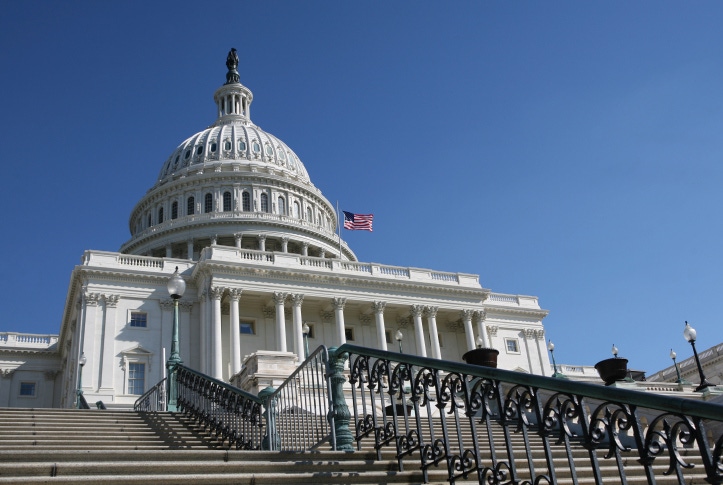May 10, 2016

Politics is a scary word. It signifies division, frustration and irreconcilable differences, and as a retailer selling wellness, you know to tread lightly. Yet at the same time, so many aspects of our daily lives—as consumers, as businesspeople, as humans—are at least somewhat wrapped up in politics. Whether it’s securing access to supplements, fighting for the right to know what’s in our food, or making sure food companies hear our voices, certain issues and initiatives require engagement from natural products retailers. So how do you engage? Here are nine nuggets of advice.
Retailer: Chris Kysar, owner of California Organics Market and Café in Nevada City, California
Inform rather than preach politics. Our customers come from all walks of life and political backgrounds, and we respect that. Our staff doesn’t talk about sex, drugs, music choices or politics on the sales floor—those just aren’t appropriate conversations. I’m not here to change political beliefs; I’m here to offer information so customers can make powerful choices. If at some point I feel a political decision is critical to the safety of my family, community and world, then, hell yeah, I’ll be all over it. But if it’s just some political belief I’m not in line with, I won’t battle that out in my store.
change political beliefs; I’m here to offer information so customers can make powerful choices. If at some point I feel a political decision is critical to the safety of my family, community and world, then, hell yeah, I’ll be all over it. But if it’s just some political belief I’m not in line with, I won’t battle that out in my store.
Take a stance against murky definitions. There are federal rules for using various food terms, but some are ambiguous. Free range is the best example. When you boil it down, it just means poultry must have outdoor access. Birds can still be given antibiotics and have miserable living conditions. So it’s really just a marketing term used to manipulate customer buying patterns. For that reason, I don’t do free range. My Thanksgiving turkeys and rotisserie chickens are 100 percent organic, and I put a lot of effort and energy into educating customers about this.
Demand transparency. If ever a nonorganic product contains corn, soy or another suspect ingredient, we ask the manufacturer for a letter to prove it is non-GMO. If we see slick marketing phrases like “we make every effort to avoid GMOs,” we won’t carry that product. We kicked out our best-selling tortilla chip because the manufacturer’s response wasn’t sufficient. I’d rather not sell something than not know for sure what I’m selling.
Non-GMO advocate: Joyce de Brevannes, director of marketing and communications of the Non-GMO Project
Know the latest on labeling. GMO labeling is a major issue right now. More than 90 percent of Americans want it, and in this election year, it’s important to know that it crosses political parties: 93 percent of Democrats, 90 percent of Independents and 89 percent of Republicans support labeling. For so long, food has united us; it’s inspiring that we are now united for food. With more states moving forward with GMO labeling laws and the DARK Act still lingering, there’s going to be a lot more talk surrounding the issue in the coming months.
forward with GMO labeling laws and the DARK Act still lingering, there’s going to be a lot more talk surrounding the issue in the coming months.
Celebrate Non-GMO Month. Every October, the Non-GMO Project holds Non-GMO Month. This campaign has tremendous buzz and is a great way to show alignment with non-GMO transparency, raise further awareness and engage with your community. We offer access to training tools, educational outreach and merchandising. We’re redesigning our retailer website, NonGMOMonth.org, and developing new, streamlined tools you can use for team trainings and community outreach year-round.
Focus on moms and millennials. Concerns about GMOs, specifically, seem to resonate most deeply with moms and millennials. Increasing store demos, sharing non-GMO recipes and calling out non-GMO options at the shelf are simple ways to help both groups shop with confidence. To build deeper relationships with moms, get involved with school and community events. Tech-savvy millennials respond well to contests, giveaways and conversations via Instagram, Twitter and Facebook, so pick one channel and engage with them in a meaningful way.
Trade association leader: Dan Fabricant, executive director and CEO of the Natural Products Association
First, lose the apathy. When it comes to politics, I see way too much apathy out there. Many retailers who were around for previous political fights like DSHEA think politics works the exact same way as it used to, when in reality, it has changed dramatically since 1994. Meanwhile, the younger generation has had little to no political involvement. Both camps concern me; neither is getting involved. There are many issues retailers should pay attention to. My initial message is to get involved—quickly.
Meanwhile, the younger generation has had little to no political involvement. Both camps concern me; neither is getting involved. There are many issues retailers should pay attention to. My initial message is to get involved—quickly.
Embrace trade associations. Belonging to a trade association isn’t just about getting discounts—it’s really about advocacy. The value may not always seem tangible for retailers, but who else is advocating for the natural products space? NPA holds Natural Products Day every year, when hundreds gather in Washington, D.C., to meet with members of Congress. Recently, there was a threat of supplements being restricted on military bases, and we got thousands of emails sent to Capitol Hill to beat it back. There will be other threats, and we want retailers to engage.
Know your representatives. It doesn’t matter how much you know or care about a given issue if you don’t know who to talk about it with. There’s a huge disconnect if you don’t have contact with your lawmakers. Learn who they are and go tell them about your business, how many people’s health it supports and how that’s important for state or city revenues. On the federal level, supplement champions like Sen. Orrin Hatch won’t be around forever, so meet with your state’s representatives to explain why this industry is important.
About the Author(s)
You May Also Like
.png?width=700&auto=webp&quality=80&disable=upscale)




